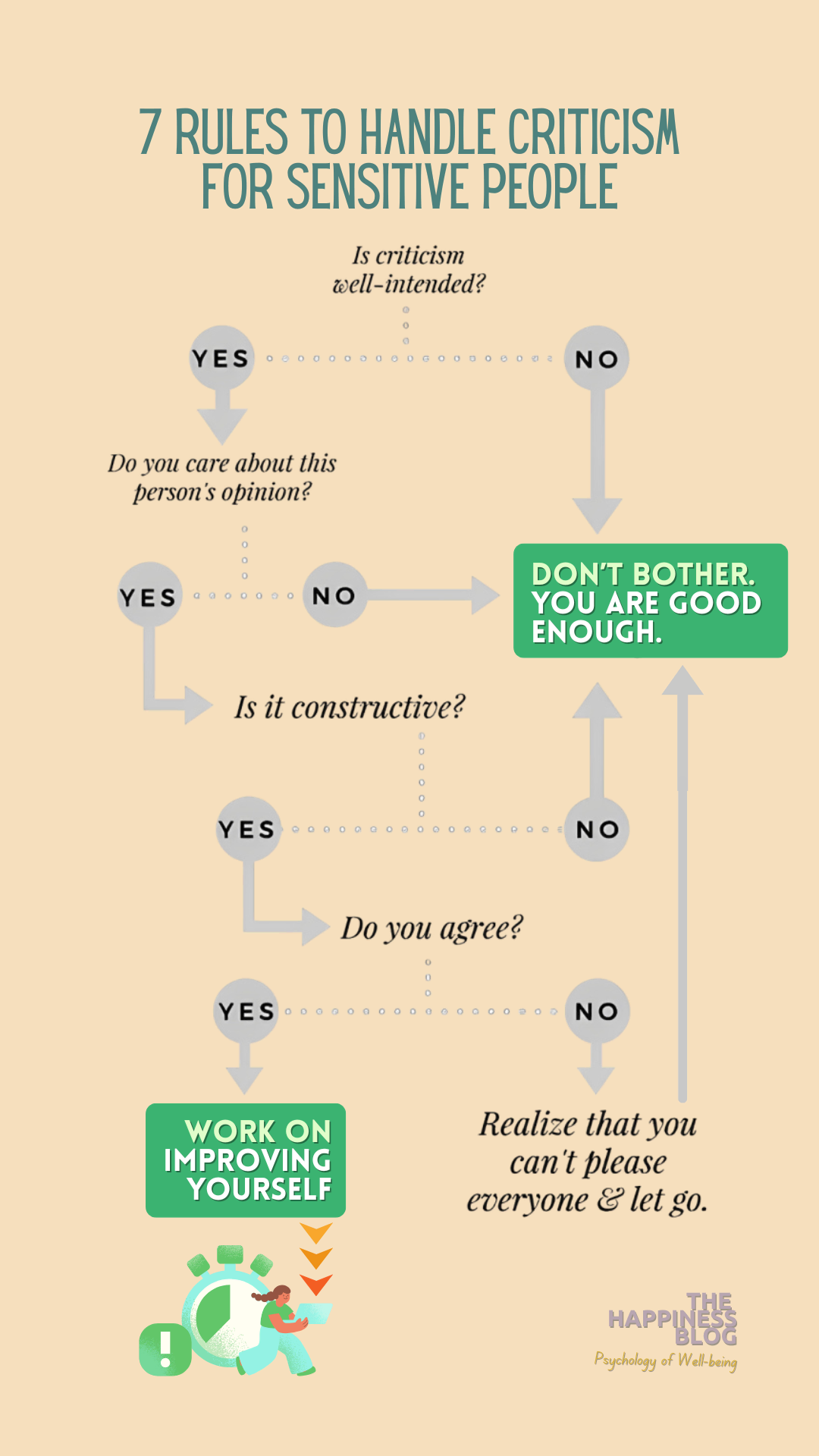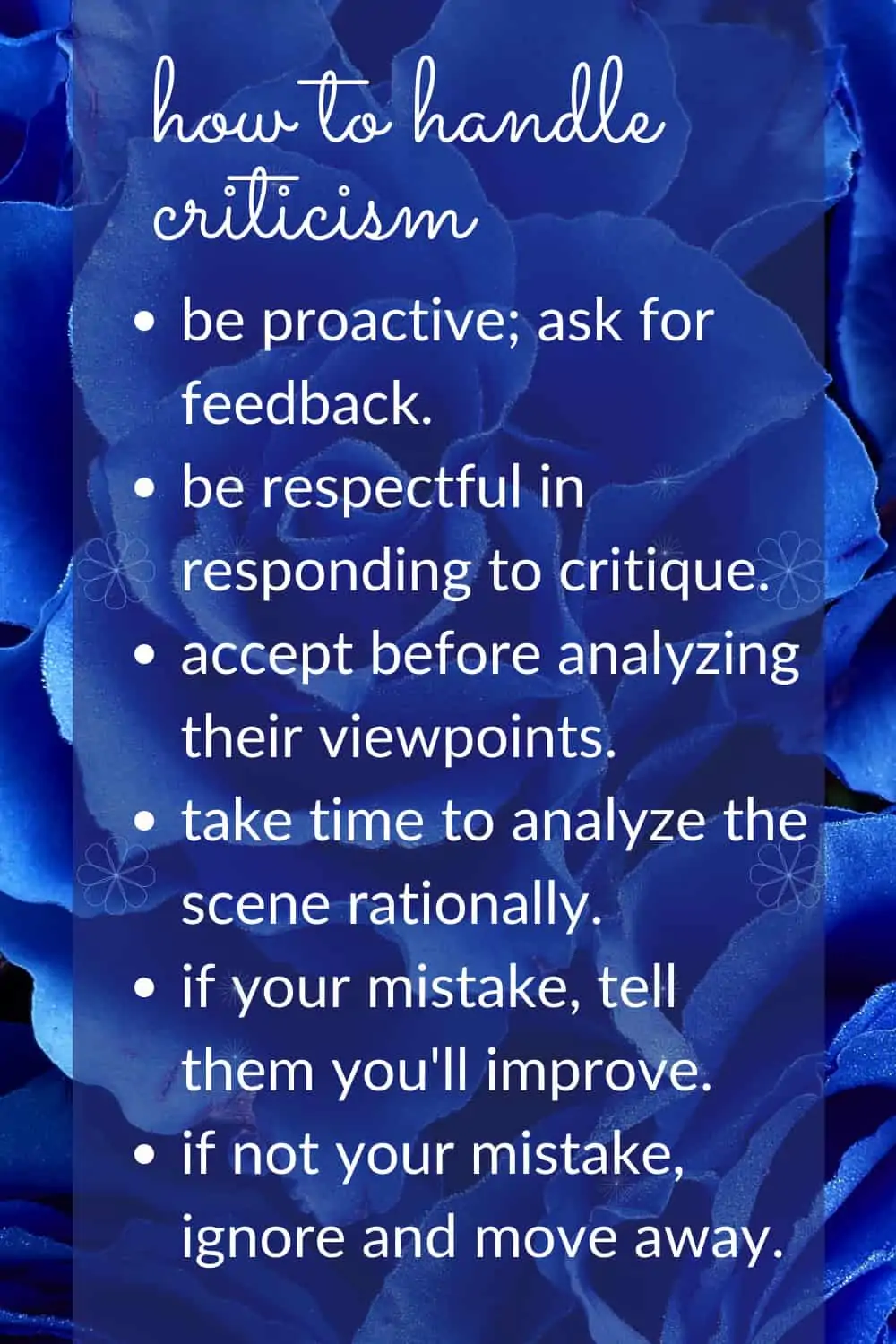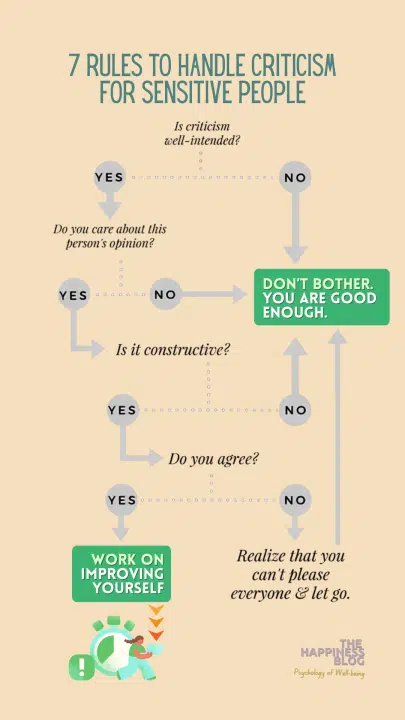Today's Thursday • 9 mins read
— By Dr. Sandip Roy.
Criticisms raid our ego harder and faster than we expect.
Many people, who insist words cannot hurt them, turn sensitive when criticized publicly. Just a few unflattering words from the ‘right’ person can make them go brittle.
That’s not even talking about the internet trolls who criticize you for some fun or money.
And then, we have this double standard:
- When people criticize us, we feel that they are being unfair. It instantly hurts our sense of self.
- But when we criticize others, we feel we are fairly judging their mistakes, without overstepping their boundaries.
Then, some people always get touchy at the slightest criticism. They may be highly sensitive people (HSP), a term coined by psychologist Elaine Aron.
Highly Sensitive People (HSPs) tend to feel emotions more intensely and deeply, are more attuned to details that others might miss (like subtle changes in tone or expressions), have stronger reactions to sensory inputs (like pain, hunger, light, and noise), and have high empathy and compassion. They have rich inner lives, find change and uncertainty difficult to handle, and are often repelled by destructive behavior and cruelty.
7 Rules To Handle Criticism For Sensitive People
4 Quick Takeaways:
- Not every criticism deserves a response.
- Pause to evaluate the criticism before responding.
- If it’s constructive and well-framed, say thanks and take the lesson.
- If it’s unhelpful and negatively framed, say, “I don’t agree with you, and that’s final.”
Rule No. 1: Don’t Reject The Positive Aspect
Give it the benefit of the doubt that it’s constructive criticism, by default.
If yes, it would point to some valid underlying issues about your work or behavior. This is the essence of good criticism.
If so, thank them. Ask some questions to get a better understanding of the issue they criticized.
The trick is to handle it without being overly sensitive: Reframe constructive criticism as an instruction manual for improvement.
A manual is to make changes, not judge the person or their delivery. That lets you keep your calm.

Rule No. 2: If They’re Offensive, Stop It Right There
The moment you realize this person is out to offend you, it’s time to clear out. Remember what Dale Carnegie said: “Any fool can criticize, complain, and condemn—and most fools do.”
Decide within the first 3 seconds if they are about to start an offensive against you, your person, or your social class. That means two things:
- You’ve already won, as they don’t have any solid argument to counter the issue.
- It’s time to smile a little and take a walk.
Feedbacks that start with insults, smears, or belittlements are never going to be constructive. If it’s not about the issue, then it can be ignored.
By the way, give them the benefit of the doubt and ask, “What exactly are you bothered about, and what do you want me to do about it?”
Rule No. 3: Warn Them Before Clearing Out
There is constructive feedback, and then there is malicious faultfinding. Of course, criticism can be unfair when it has nothing to do with you or your job. It can also be unfair simply because it is wrong.
Either way, such criticisms point out a deficiency in the critics themselves.
Don’t let anyone off the hook if they’re constantly yelling at you, telling you that you’re worthless. Tell them their behavior is obnoxious and unacceptable.
Ask them to either frame their criticism constructively or get lost. If they still haven’t moved away, warn them that if they do not do so or change their stance immediately, you’re clearing out.
Let Ray Bradbury, the celebrated American science-fiction author, guide you on this:
“I have never listened to anyone who criticized my taste in space travel, sideshows, or gorillas. When this occurs, I pack up my dinosaurs and leave the room.”
Busy now? Download the Checklist To Become Tough To Criticize (Right-click to save link).
Rule No. 4: Don’t Be Bullied. Don’t Be The Bully.
When you know the exact reason for a given criticism, you can use that to make changes. Otherwise, it’s bullying, not critiquing.
The freelance journalist Maham Barbar explains the difference:
Constructive criticism is a process of offering well-intended remarks on the work of others so they can know their strengths and weaknesses, which helps them improve in the future.
Bullying is unwanted aggressive behavior that is used to exploit someone. This behavior is repeated, and it can affect the person’s physical and mental health.
The same holds for you: don’t be that narcissistic dirtbag. Don’t insult others like they are idiots. Instead, offer them well-meaning, constructive, insightful feedback, especially when you know they are sensitive to criticism.
Rule No. 5: Respond With Your Thinking Brain (Not The Reactive Brain)
Some people handle criticism better than others. They seem to have a special ability to defuse a tense situation and disarm the critic. They take control instead of feeling helpless or angry.
To be that kind of person, stop yourself from reacting immediately. Instead, pause and think rationally before responding. This lets you process the information with a calm and open attitude.
- Our first response to criticism comes from our reptile brain. That’s because we see the criticism as a threat and react to survive.
- But if you give it a few moments, you can engage your higher, thinking brain, and see clearly whether it’s helpful criticism or not.
And not everyone who doesn’t see things the way you do is criticizing you. Ralph Waldo Emerson had this self-advice: “Let me never fall into the vulgar mistake of dreaming that I am persecuted whenever I am contradicted.”
If your rational brain decides it’s a negative criticism, do these:
- Express the pointlessness of their point, but be polite.
- Do not respond to the tone of the criticism.
- Say, “I don’t agree with you, and that’s final.”

How To Handle Criticism (Flow Chart):
- First, ask yourself if the criticism is well-intended. If it’s not, consider whether you care about the person’s opinion. If you don’t, let it go, as you’re good enough as you already are.
- If you care, check if the criticism is constructive. If it’s not, realize you can’t please everyone, and move on. If it is constructive, ask yourself if you agree with it.
- If you do, use it as a chance to improve. If you don’t, tell yourself not all criticism deserves a response and let it go.
Rule No. 6: Do Not Let Criticism Bother You
Not every criticism deserves a response.
Read that again: Not every criticism deserves a response from you.
The person criticizing would have criticized someone else in your position. Their nature is to criticize others. Such criticisms are invalid and don’t deserve a response from you.
Do not allow their words to damage your self-esteem and self-confidence. Ignore them.
And figure out the people in your life who want the best for you. Most of the time, their criticism of you is an open dialogue with you.
Rule No. 7: Stop Taking Criticism Personally
Whatever or from whomever the criticism, tell yourself that it’s about your work or behavior, not your worth as a person.
You could say in your mind, “His words can’t pierce my work attire to reach my person.”
Separate your identity from their feedback. Don’t let their words decide what you are worth to yourself.
When you take criticism personally, it clouds your judgment, seeds regrets in you, and blocks your growth.
- Until you get better at it, practice self-compassion.
- Offer them compensation for your mistake if there was a mistake.
- As the person who has been criticized, do not be resentful or gossip about the critic.

Bonus Rule: Set Clear Boundaries
Setting clear boundaries is key to handling criticism better.
Boundaries are the psychological fences that lay out what’s acceptable to you. They tell others what behaviors of theirs you will tolerate when they interact with you.
Boundaries create a safe space that lets you take feedback more constructively. Since you know your limits, you can easily sift out criticism that doesn’t line up with your values or goals.
When you maintain your boundaries, you’re less likely to feel hurt by criticism. Instead, you can impersonally assess whether the feedback is useful and relevant to your work.
Overall, boundaries help you respond thoughtfully rather than reactively, keep your self-esteem intact, and make it easier to take lessons from good criticism without feeling too sensitive.
Remember, if a critic is targeting your work, it should be accepted and even welcomed, but must be left at the workplace.
Cancel Culture
“Cancel culture” is a modern term for social ostracism in which someone is forced out of professional or social circles, online or in person. Those subjected to this ostracism are said to have been “canceled.”
It is a particularly savage offensive on one’s reputation, carefully built over years. Many of the thick-skinned people, who insist that no insults or criticism can hurt them ever, can turn brittle when the ‘cancel culture‘ targets them.
Final Words
Silencing critics without giving offense is a skill. To master that, first, stop jumping to counter their next critique. Instead, let them speak while you listen actively.
You may then decide to distance yourself from that critic and not engage with them unless you must.
John C. Maxwell says, “The price of leadership is criticism. No one pays much attention to the last-place finishers. But when you’re in front, everything gets noticed. So it is important to learn to handle criticism constructively.”
In his book, Leadership Gold, John C. Maxwell outlines a four-step process that he uses when people criticize him as a leader: 1. Know yourself. 2. Change yourself. 3. Accept yourself. 4. Forget yourself.
√ Also Read: How To Handle Criticism Like A Professional?
√ Please share this with someone.
» You deserve happiness! Choosing therapy could be your best decision.
...
• Disclosure: Buying via our links earns us a small commission.
